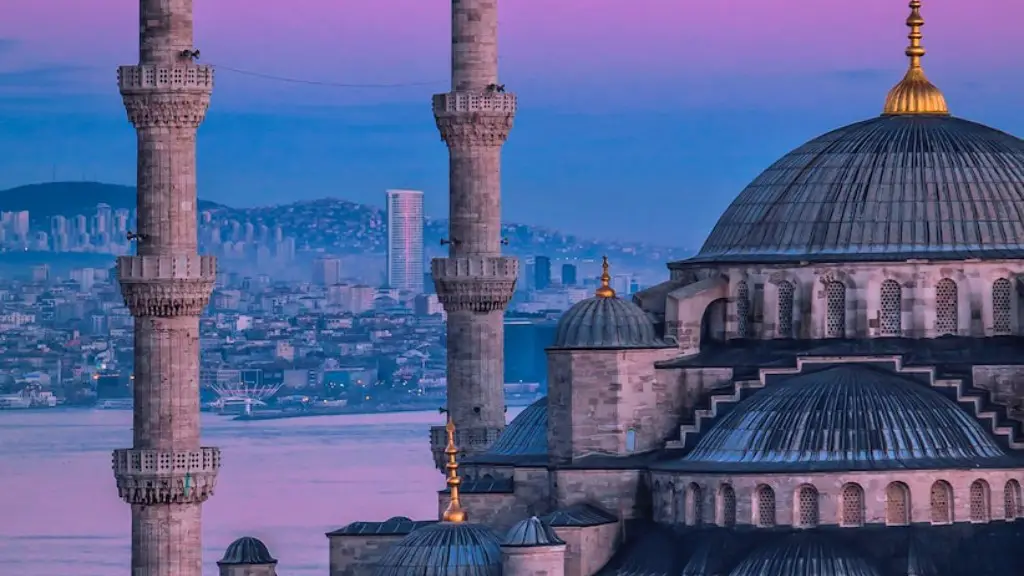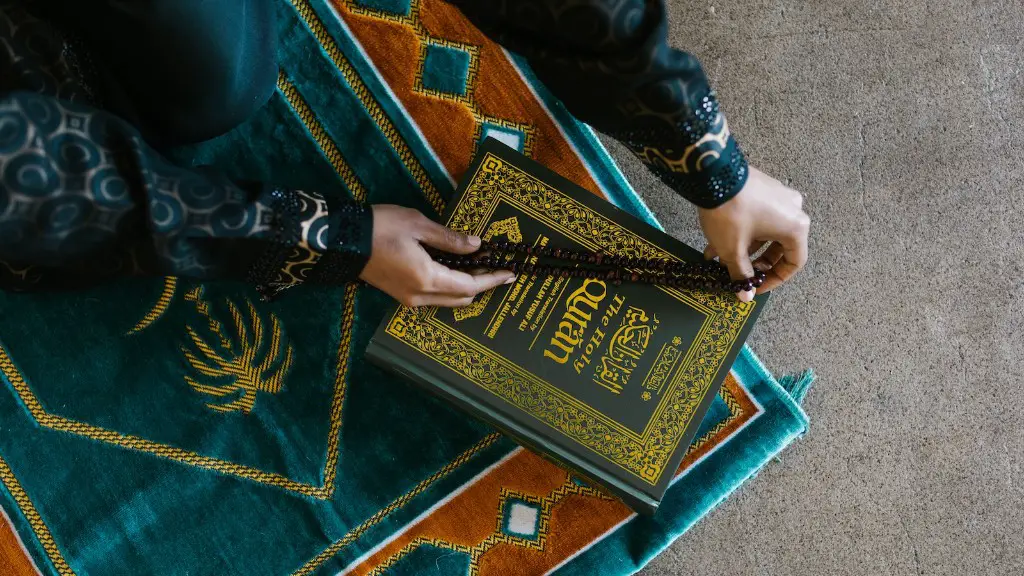Introduction
The number 108 is an extremely significant number to Hindus due to its importance in spiritual and religious practice. 108 is one of the most regular figures in Hinduism as it carries spiritual significance as multiples of important numbers. This article will explore why 108 is sacred in Hinduism by discussing how the number is used in Hindu spiritual practices and how it symbolizes major spiritual concepts.
The Significance of 108 in Hinduism
The number 108 holds a profound significance in Hinduism. It has been widely used since ancient times in Hindu religious practices and tradition. The significance of the 108 figure is evident in numerous spiritual and religious contexts throughout India.
The number 108 is regularly mentioned in Hindu scriptures such as the Upanishads and the Puranas. Additionally, 108 is the number of beads used in Japa Malas, which are strings of beads used to keep track of mantras during meditation. There are also 108 sacred energy centers in the body known as the chakras, which are associated with spiritual growth and enlightenment.
What’s more, 108 is a number of representation of the holy Hindu trinity, consisting of Brahma, Vishnu, and Shiva. This is illustrated in the fact that each of these Trinities is represented by 36 Gods, making the total number of Gods 108. Furthermore, there are 108 Upanishads, which are texts that explore spiritual truth through meditation and knowledge.
108 is also an important number in astrology and numerology. It is said that the nine planets in the solar system each have a numerical value, and when added together the total is 108. Additionally, the number 108 contains the nine digits used in the Indian system of numerology, making it an important number for calculations.
Moreover, 108 is said to represent the number of spiritual steps a person must take to reach enlightenment. For this reason, it is often used during spiritual and religious ceremonies to signify progress on the spiritual journey.
Overall, the number 108 has multiple significant meanings in Hinduism, and it is widely used in spiritual and religious practices.
How 108 is Used in Hindu Spiritual Practices
108 is widely used in many Hindu spiritual practices and rituals. For example, many Hindus start their day with prayer and meditation using 108 beads in Japa Malas. Additionally, 108 is an important number during spiritual ceremonies such as weddings and funerals. At weddings, Hindus often use 108 marigold petals to signify the union of two people.
The number 108 is also especially important in yoga, which is considered one of the most important branches of Hinduism. In yoga, 108 refers to the number of postures that a practitioner must do to reach optimal health and harmony. Additionally, yoga is often performed during spiritual ceremonies such as the MahaShivratri and the Mahamrityunjaya mantras, which are said to be auspicious when done 108 times.
Furthermore, the number 108 is used in many Hindu rituals and festivals. For instance, some devotees do 108 circumambulations of a temple to bring good luck. Additionally, many devotees chant mantras 108 times and also offer 108 lamps (deepal) to the deity during festivals such as Diwali.
Overall, the number 108 carries great significance in Hindu spiritual practices and has many uses in ceremonies, rituals, and festivals.
The Symbolism of the Number 108
The number 108 has numerous symbolic meanings in Hinduism, although it is not always clear why a particular number has symbolic significance. The general consensus is that 108 symbolizes a range of important spiritual concepts. For instance, it is said to represent the number of spiritual steps on the path of enlightenment. As such, it is often used in ceremonies to signify progress.
Furthermore, 108 is said to represent the number of astrological bodies, including the sun, moon, and planets in the solar system. Additionally, it is said to symbolize the nine major orifices of the human body, including the eyes, nose, and ears.
Moreover, 108 is thought to symbolize the number of virtues a person must acquire to achieve moksha, which is a Hindu concept of liberation from the cycle of reincarnation. Additionally, it is said to symbolize the 108 aspects of the divine, including love, wisdom, and courage.
Overall, 108 is a symbolic number in Hinduism that has various meanings related to spiritual concepts.
The History of the Number 108 in Hinduism
The use of the number 108 has a long history in Hinduism and can be traced back to ancient times. For instance, it has been mentioned in Hindu scriptures such as the Upanishads and the Puranas, which date back to ancient India. Additionally, it is believed that the use of the number 108 in yoga dates back thousands of years.
Moreover, the use of the number has been documented in many Hindu texts over the centuries. For example, it is mentioned in ancient Vedic texts and in Tantra literature, which dates back to the 8th century. Additionally, it is said to have been used in ancient Sanskrit texts, as well as in Buddhist scriptures.
The number has also been used during ceremonies and rituals for centuries. For instance, many Hindus practice rituals such as circumambulating a temple or offering lamps to the deity 108 times as a way to honor the divine.
Overall, the number 108 has a long history in Hinduism and has been used in many spiritual and religious contexts over the centuries.
The Meaning of 108 in Contemporary Hinduism
In contemporary Hinduism, the number 108 continues to be an important spiritual symbol. It is widely used in Hindu traditions and ceremonies today. For instance, many Hindus practice meditation with a Japa Mala of 108 beads. Additionally, many devotees chant mantras 108 times during spiritual ceremonies and rituals.
Furthermore, the number is still symbolic of major Hindu concepts such as the trinity of Brahma, Vishnu, and Shiva. Additionally, it is still widely used to represent the number of astrological bodies, the number of virtues a person needs to acquire, and the number of steps to enlightenment.
What’s more, the number 108 is still important in yoga and is used to represent the number of postures that must be done to reach optimal health and balance. Additionally, feminists have adopted the number 108 as a symbol of female empowerment, as the number is believed to symbolize the 108 names of the Hindu Goddess, Durga.
Overall, the number 108 is still an important spiritual number in Hinduism and carries symbolic significance in contemporary Hinduism.
The Use of the Number 108 in Other Religions
The number 108 is not exclusive to Hinduism, as it is also an important spiritual number in other religions. In Buddhism, the number has many uses, including the number of beads in the Buddhist rosary, the number of realms of existence, and the number of hazards a person must overcome to reach enlightenment.
Furthermore, in Japanese culture, the number 108 is associated with the Deities of protection. In Chinese culture, 108 is associated with the number of earthly desires a person must overcome to reach enlightenment. Additionally, in Sikhism, there are said to be 108 gurus.
Moreover, in some mystical traditions, the number 108 is used to represent the unity of all things. Additionally, some claim that the distances between stars, galaxies, and other cosmic bodies can all be measured in multiples of the number 108.
Overall, the number 108 is important in many different religions and carries spiritual significance in many cultures around the world.
The Myths and Legends of the Number 108 in Hinduism
The number 108 has long been associated with myths and legends in Hinduism. For instance, it is said that the 108th Jyotirlinga is the representative of Lord Shiva, and the 108th Upanishad is said to contain important spiritual truths. Additionally, it is said that God has 108 names, including Vishnu, Shiva, and Devi.
What’s more, some stories say that the 108th Jyotirlinga is a special manifestation of Shiva that can bring good luck to those who worship it. Additionally, the story of 108 Kavachas in Hindu mythology states that the number has a protective power that can ward off harm.
Furthermore, some say that Ganesha has 108 different names, includingVighneshvara, Sumukha, Ekadantha, and Heramba. Additionally, Hindus often break coconuts 108 times as a way to honor their gods and goddesses during worship.
Overall, the number 108 has many mythical and legendary associations in Hinduism and is widely used for its spiritual and protective properties.
Conclusion of Why 108 is Sacred In Hinduism
Overall, the number 108 is an important spiritual number in Hinduism. It is widely used in spiritual and religious practices, as well as in Hindu rituals and festivals. Additionally, the number is symbolic of major Hindu concepts, including the trinity of Brahma, Vishnu and Shiva, and the number of astrological bodies. It also has a long history in Hinduism and is still an important spiritual symbol in contemporary Hinduism. Furthermore, the number is also an important spiritual number in many other religions as well. Finally, the number has many myths and legends associated with it in Hinduism, and it is often used as a way to honor the gods and goddesses in Hindu worship.



